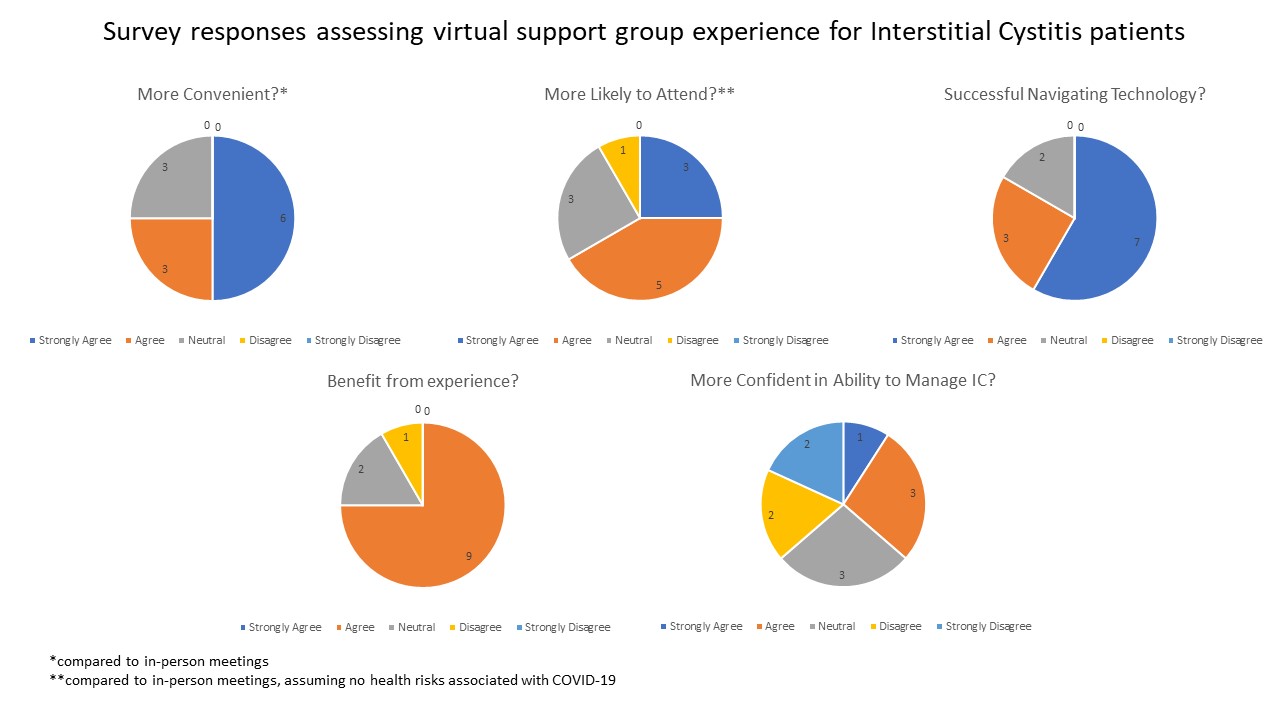Podium
PD08: Infections/Inflammation/Cystic Disease of the Genitourinary Tract: Interstitial Cystitis
-
GT
Podium Presenter(s)
Introduction: To our knowledge no study has implemented virtual support groups in conjunction with the standard of care as a potential additional supportive measure for patients with interstitial cystitis (IC). The aim of this study was to assess feasibility and the patient experience of virtual support group sessions in this population.
Methods: Adult IC patients seen at our institution within the past 6 months were identified by ICD-10 diagnosis code N30.10. Eligible patients were offered to attend two predetermined virtual support groups. Three, hour-long sessions were held over Zoom for each group, with each session separated by two weeks. After the concluding session, participants completed a survey assessing their experience with the virtual support group. A free text response was also prompted regarding patient's overall experience.
Results: 12 patients formed two support groups (5 females in one, 5 females and 2 males in the other). 10 attended all three virtual sessions, with 2 missing the last session. All 12 completed the survey. 9 patients (75%) agreed that a virtual setting was more convenient compared to in-person meetings (3 were neutral) and 8 patients (67%) stated they would be more likely to attend virtually even without health risks related to COVID-19 (3 were neutral, 1 preferred in-person). Logistically, 10 patients (83%) were able to successfully navigate the technology involved (2 were neutral). As an overall experience, 9 patients (75%) reported benefit from attending (2 neutral and 1 disagreed). Only 4 patients (33%) indicated they felt more comfortable managing their IC as a result of participation in the group (3 were neutral, 4 disagreed). Feedback in free text comments expressed appreciation for hearing others’ journey with IC. Other comments included discomfort with a mixed sex group, a wish for more than 3 sessions to allow for better connection in a virtual setting, and a wish for patient education by the session moderator.
Conclusions: Offering interstitial cystitis support groups in a virtual setting is a viable alternative to in-person meetings. IC patients who otherwise would not attend an in-person support group may be inclined to participate virtually. Future support groups may benefit from being as longitudinal as possible to facilitate comfort among participants in a virtual setting.
Source of Funding: None

.jpg)
.jpg)